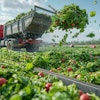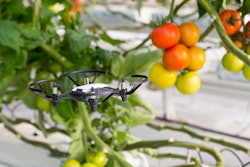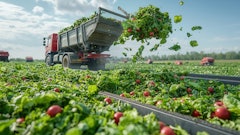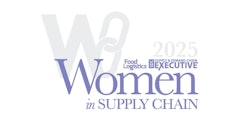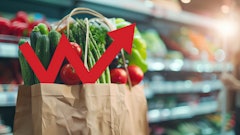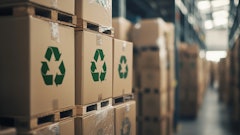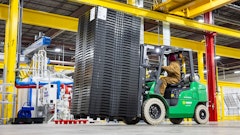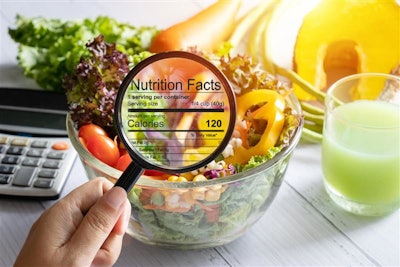
Sustainability has become a buzzword in the food industry over the past couple years as the adoption of conscious consumerism continues to rise. In response to growing social pressure, food companies have become increasingly vocal about the steps they’re taking to reduce the social and environmental impacts of their operations.
Some companies have backed these claims with bold action. But many others have landed in legal hot water. In fact, recent data from Perkins Coie shows 220 lawsuits were filed against food and beverage companies due to misleading food labels throughout 2020, a more than 350% increase from a decade ago.
The uptick in lawsuits points to a backlash against the prevalence of labels such as “humane,” “single-origin,” “eco-friendly” and of the greater phenomenon of greenwashing. These claims that are supposed to signal meaningful sustainability practices have too often become marketing tools. Consumers nowadays are not only more socially conscious than previous generations, but they’re also more sophisticated about business marketing, and are questioning these declarations.
Greenwashing, while intentional or not, has harmful effects for all parties involved in the food industry, and it is time retailers, suppliers and brands begin taking sustainability seriously and bring transparency to their practices by leveraging the power of data. Collecting comprehensive data from a wide range of data sets that paints a complete picture of your operations -- from greenhouse gas (GHG) emissions and wages to animal welfare, water usage and more -- is key in accurately determining product sustainability. The data doesn’t lie, and the insights gleaned from this information will help put an end to greenwashing and hold food companies accountable to improve their social and environmental impact.
The problem with greenwashing
Whether greenwashing is a result of good intentions gone awry or deliberate deception, it’s based on misinformation and the result is the same, a confused customer who’s not getting to support the values that are important to them. For example, there’s often titles on egg cartons in grocery stores claiming the eggs are cage-free, free-range, free-roaming, certified humane or USDA Organic. Misinformation around what these standards actually mean is one of the main forms of greenwashing. While these titles may be true for the product, the problem arises through the disservice to consumers from these titles being too similar, but the requirements for each are worlds apart. Unless a consumer is knowledgeable about product labeling and food standards, the meaning behind these certifications becomes convoluted.
In addition to negatively impacting consumers, greenwashing also harms brands and retail chains through loss of consumer trust. Transparency is critically important in the food industry today because consumers have very little insight into where the food they eat is coming from. If they’re buying food from the farmer down the street, they’ll have a general understanding of how that food came to be. However, when buying food from the grocery store, there are very few retailers providing insight into farming practices or where the ingredients were sourced from, so for many consumers, it’s nearly impossible to determine impact without disclosure from food companies. Considering some of the largest impacts on our planet are a result of food production, including loss of biodiversity and carbon production, providing consumers with this information to act on is incredibly valuable. As soon as consumers are wondering whether they’re being scammed by empty sustainability claims, engagement with the product will fall.
Approach sustainability holistically
When evaluating product and company impact, doing so effectively requires looking at every step of the supply chain. While extremely important, the need for sustainability exists beyond the walls of an organization’s carbon footprint and humane animal treatment. Too many companies focus the bulk of their sustainability efforts on just one aspect when sustainability should be approached holistically.
For example, when measuring carbon emissions as a food company, look further than just emissions specific to your company and dig deeper into the environmental impact of Scope 3 emissions, such as the on-farm practices of suppliers. If you buy all ingredients from the commodities market, it could be easy to claim that your company’s footprint is low because you don’t own the farms where the ingredients are coming from. However, at the end of the day, the impact of food companies includes field-to-farm gate emissions of each ingredient purchased, as well as the carbon produced by how your products are packaged, transported and distributed.
This also rings true for a company’s contribution to biodiversity, working conditions, water use and more. If we try to oversimplify the complexities within the food system when creating standards, we drive toward an over-simplistic view of the overall system, which can end up doing more harm than good. The more holistic the approach, the more we can focus on solving one problem, instead of causing two others.
Many of the current issues in the food system stem from the over-production of food to solve the calorie shortages post-World War II. We’ve continued to produce vastly more calories than needed to feed the world right now, but we don’t distribute them well or produce them in a manner that is conducive to supporting the communities from where they’re sourced, which oftentimes, are the most vulnerable communities struggling with poverty, hazardous working conditions and land degradation. These facts aren’t shown on labels and are not commonly measured by food companies, but the more companies understand the impact of their products at a micro-level, the more effective changes they can make to reduce harmful practices and bring transparency to the food industry.
The focus on sustainability will only continue to grow
With growth trends around sustainability issues within the food industry increasing over the past 10 years and the human population expected to reach 9.7 billion by 2050, the need for innovation in food production is upon us.
Last year’s record number of greenwash lawsuits against the food industry are not a peak. We’re seeing a generational shift in mindset – as the consequences of climate change become more tangible and as the socially conscious younger generation grows to become the dominant market force, companies will continue to face pressure to clean up their acts and do so in a meaningful way.
Greenwashing is easy to do, but best to avoid. Customers reward those companies making the most transformational changes. But, customers will abandon those companies who don’t live up to the claims they make. These efforts will take time, but they’re well worth it, not just for the public and the planet, but for the bottom line too.



